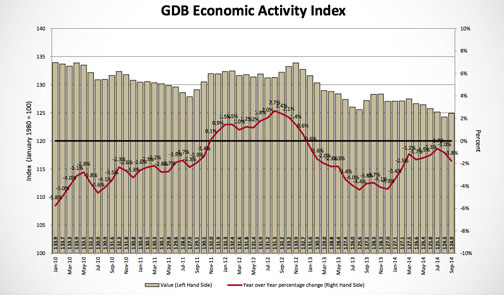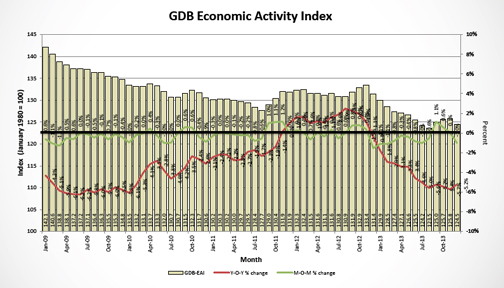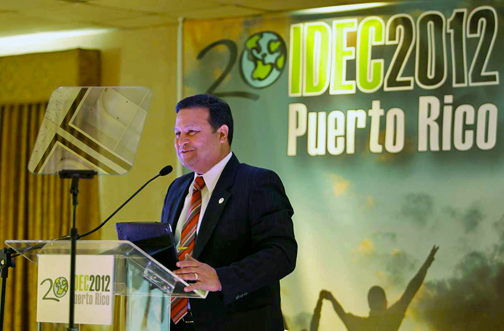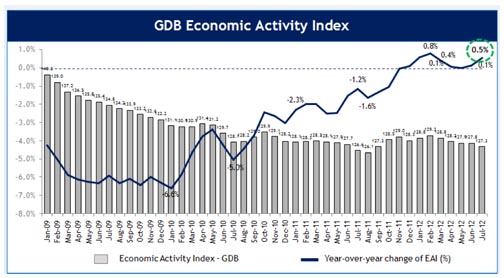Retailers: Normalcy returning 6 mo.’s after Hurricane María disruption


Activity has picked up at grocery stores, six months after Hurricane María caused significant disruptions in the supply chain.
Representatives from Puerto Rico’s retail sector confirmed activity is near normalcy six months after Hurricane María generated product shortages and problems at the ports during the first few weeks after the storm.
“María created a definite distortion in the area of retail sales,” said Economist Antonio Rosado, speaking on behalf of the Puerto Rico Retail Association.
“Some stores were severely destroyed and had to rebuild completely. Others were able to survive and repair quickly to reopen. The sector began its recovery as electricity was restored,” he said.
Citing figures provided by Puerto Rico Trade and Export, Rosado said by December, 12 percent of small retailers and 30 percent of large stores had reopened for business.
Now, a number of factors have positively affected the sector, driven by federal aid that has flowed into consumer pockets, who have generated “good movement for companies.”
Last month, the trade group unveiled a study that Rosado conducted, which predicted that hurricane-related retail sales losses could reach $3.2 billion because of María. However, sales have been recovering quickly and it is expected that by the end of the current fiscal year on June 30, the retail sector should see positive results instead, the economist noted.
Meanwhile, Puerto Rico Chamber of Food Marketing, Industry and Distribution Vice President Manuel Reyes said although traffic at the ports is not quite back to normal for a number of different reasons – last week’s rough waves, capacity limitations from transporters stateside — generally speaking, sales are growing for the majority of larger retailers.
“Initially after the hurricane, not all products were available, so people were buying anything they could get,” he said, on behalf of the organization known as MIDA. “Now, there are additional resources, and more money available, specifically for participants of the Nutritional Assistance Program, which nearly doubled the funding assigned to Puerto Rico.”
He also said retailers that were insured have been able to get back to business, “but for retailers that were not insured well, the reality is quite different.”
Lessons learned
Reyes said MIDA is putting together a report to outline the best practices for retailers to be better prepared in case of similar future emergencies.
For one, retailers have to work on having redundant energy and telecommunications systems, as well as greater diesel storage capacity.
“Retailers can no longer count on just a power generator. They also have to look for redundant telecom systems, and some retailers have already moved to having landline and satellite systems available. They have made different investments to be better prepared,” Reyes said.
Reyes and Rosado concurred that a significant lesson learned in the wake of the storm is the need to eliminate taxes levied on inventories, so that retailers are in a better position to have enough products on hand on-site or in local warehouses.
“We went through problems and needs after the hurricane because decisions weren’t made on time,” he said.
Rosado, meanwhile, said eliminating taxes on inventories stimulates businesses to build larger warehouses to have more products in Puerto Rico, and even export to other Caribbean islands.
“Placing a tax on business inventories is barbaric, especially for us as an island that needs to have greater inventories available,” Rosado said. “There has to be a policy in place to stimulate companies to have their stockpiles. This island does exactly the opposite of what makes sense.”
In response to the growing claim for change, a bill is currently under scrutiny at the Legislature. Today, the Government Commission and the House Finance Commission will hold a joint hearing on House Bill 1411, which aims to eliminate taxes on inventories and increase municipal taxes.
Several public hearings have already taken place, during which different trade groups have testified. Today, the CPA Society, the Puerto Rico Builders Association and the Puerto Rico Restaurants Association will offer their opinions on the bill.
“The bill isn’t perfect, we’re recommending amendments. But the pursuit of perfection can’t stand in the way of having something in place,” Reyes said. MIDA has been lobbying for the elimination of inventory taxes for years.
“For many years, the CPA’s have advocated for the elimination of property taxes on inventories, as well as other taxes that make the productive businesses activity more expensive, such as sales and use tax between businesses. After the passage of Hurricane María, we experienced what we had anticipated, the lack of essential products and materials, and parts necessary for the operation and reconstruction of homes and businesses,” said CPA Society President Ramón Ponte.










